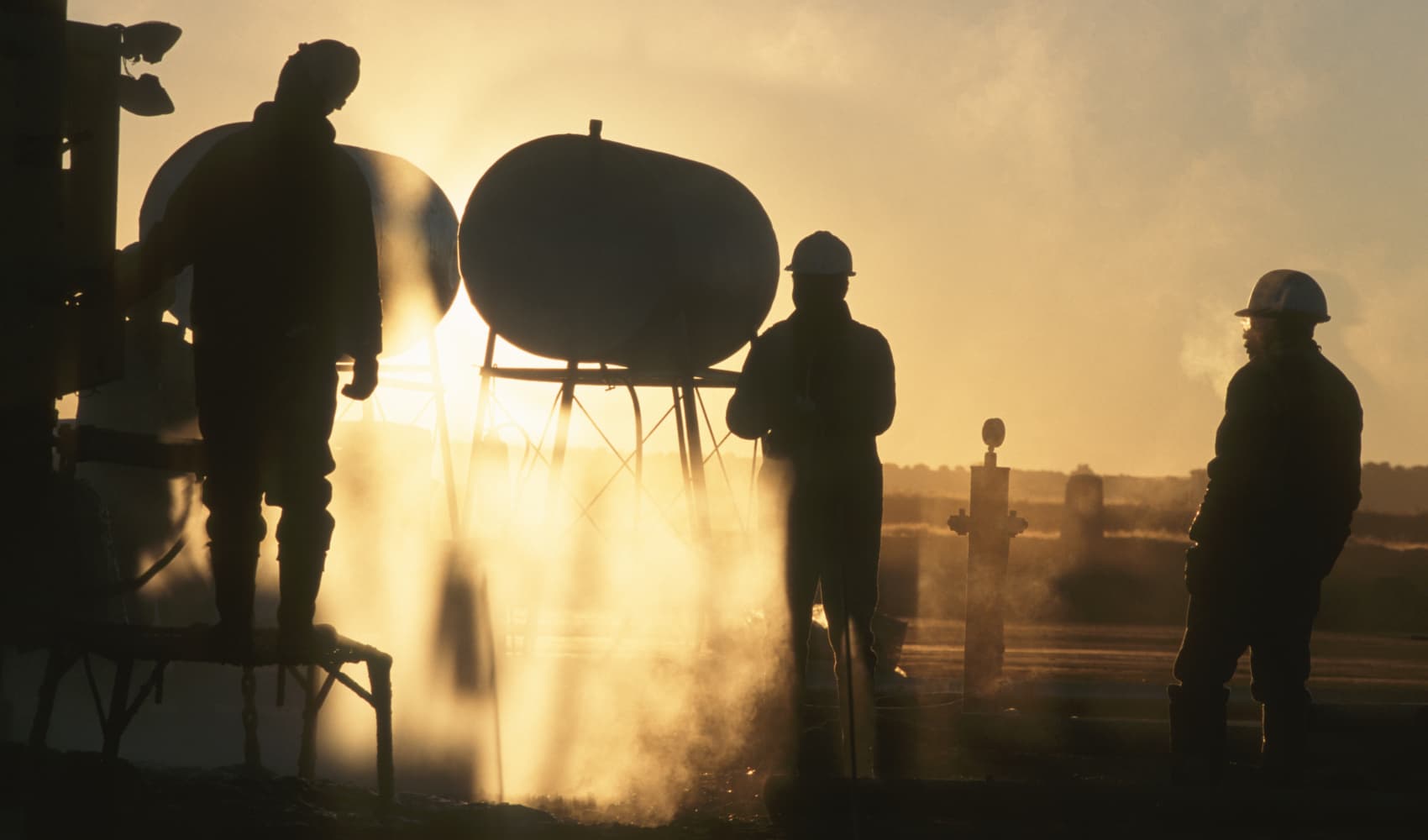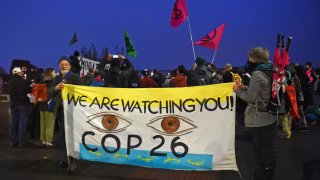
The coverage on this live blog is now over.
International lawmakers, business leaders and activists convened in Glasgow, U.K. on Tuesday in the final week of the COP26 climate summit.
Delegates have been asked to accelerate action on climate change and commit to more ambitious cuts in greenhouse gas emissions, all in an effort to limit global temperature rises.
Here are some of the biggest developments Tuesday:
Get Philly local news, weather forecasts, sports and entertainment stories to your inbox. Sign up for NBC Philadelphia newsletters.
- The world needs more nuclear energy, French official says{
5:30a.m.: The world needs more nuclear energy, French official says
France's President Emmanuel Macron has been pushing for nuclear energy to become a bigger part of Europe's energy mix with the issue becoming increasingly salient against a backdrop of energy price hikes and supply issues in recent months.
In October, Macron announced that France would build new, smaller nuclear reactors as part of a five-year investment plan aimed at re-industrializing the country.
Cedric O, France's secretary of state for the digital economy, told CNBC at the COP26 summit that nuclear energy was a rational choice.
"If you want to reduce your carbon emissions you need to develop renewable energies ... but you [also] need an energy which is not dependent on the level of sun or the speed of the wind, you need an energy that is constant so you have a choice between coal, gas and nuclear."
"If you do the maths, we need more nuclear, it's not only France that's saying this it's also the International Energy Agency and we see that, globally, more and more countries are considering that nuclear question."— Holly Ellyatt
=null} - COP26 panel focuses on 'keeping 1.5C alive' with the help of science{
8:45 a.m.: COP26 panel focuses on 'keeping 1.5C alive' with the help of science
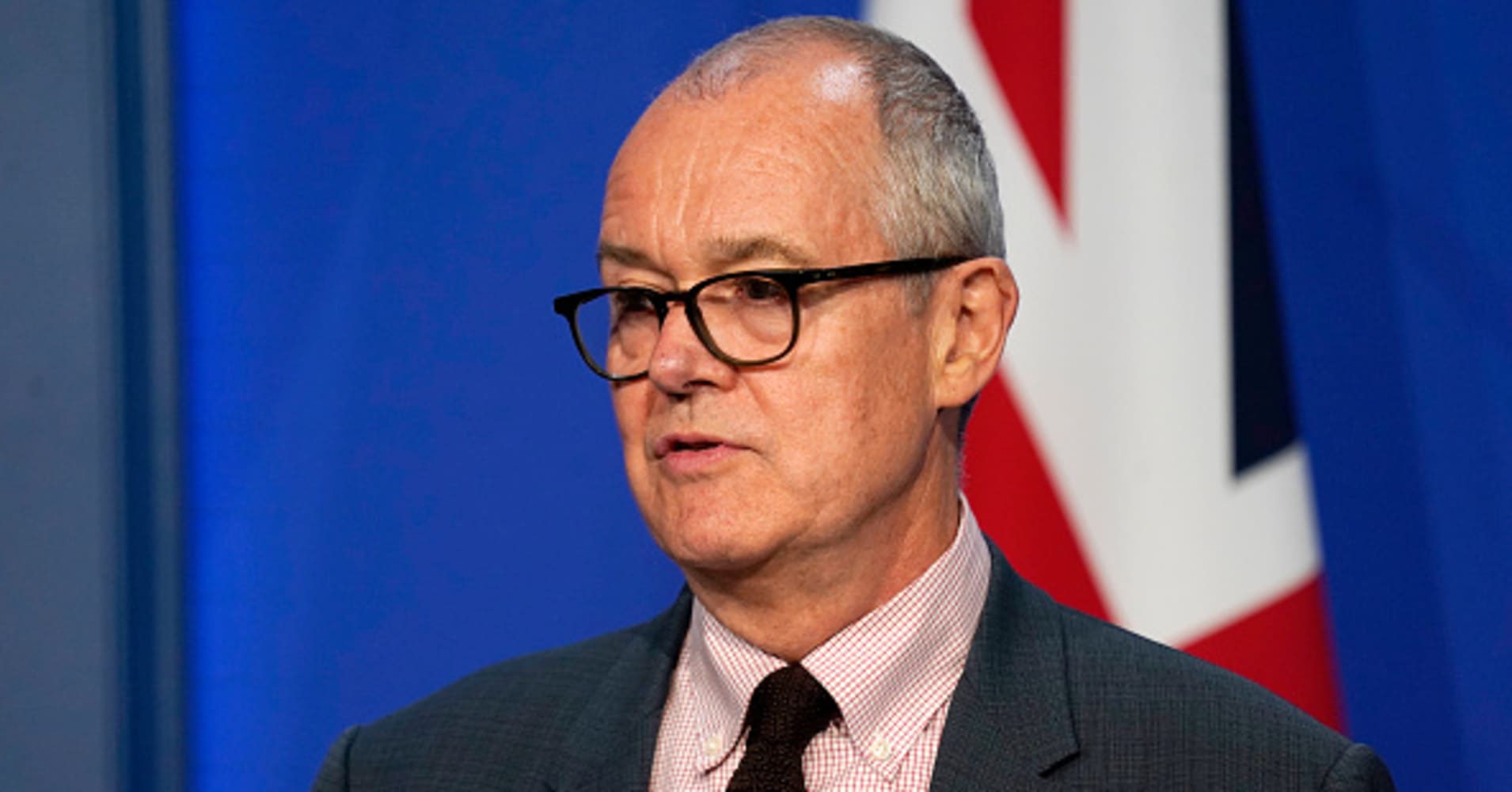
A panel has begun at the COP26 summit looking at how countries, corporations and climate organizations can, as the organizers put it, "keep 1.5C alive" referring to the 2015 Paris Agreement pledge to limit global warming to 1.5 degrees Celsius, compared to pre-industrial levels.
Patrick Vallance, the U.K. government's chief scientific advisor, said that science and technology have the biggest role to play in tackling, tracking and measuring climate change, as well as assessing measures being put in place to reduce carbon emissions.
Vallance spoke of the need to adapt to climate change "in order to be ready for what's coming" and to embrace technologies to tackle, and reduce, the impact of climate change.
"We have many of the technologies needed to tackle the problem but they need to be improved," he said, listing that technologies need to "come down in cost, they need to increase in convenience, they need to be applicable right across the globe and we need to scale them." The latter, he said, requires research and development.
Science has to be woven through "every single consideration in our response to this global problem we face," he said. "Science has played the role of the diagnostician ... now it now needs to play the role of the treatment as well, and the treatment will be in technology, innovation, land and natural solutions and behavioral and societal change."
— Holly Ellyatt
=null} - Global warming to hit 2.4 degrees by the end of century, Climate Action Tracker warns{
10:01 a.m.: Global warming to hit 2.4 degrees by the end of century, Climate Action Tracker warns
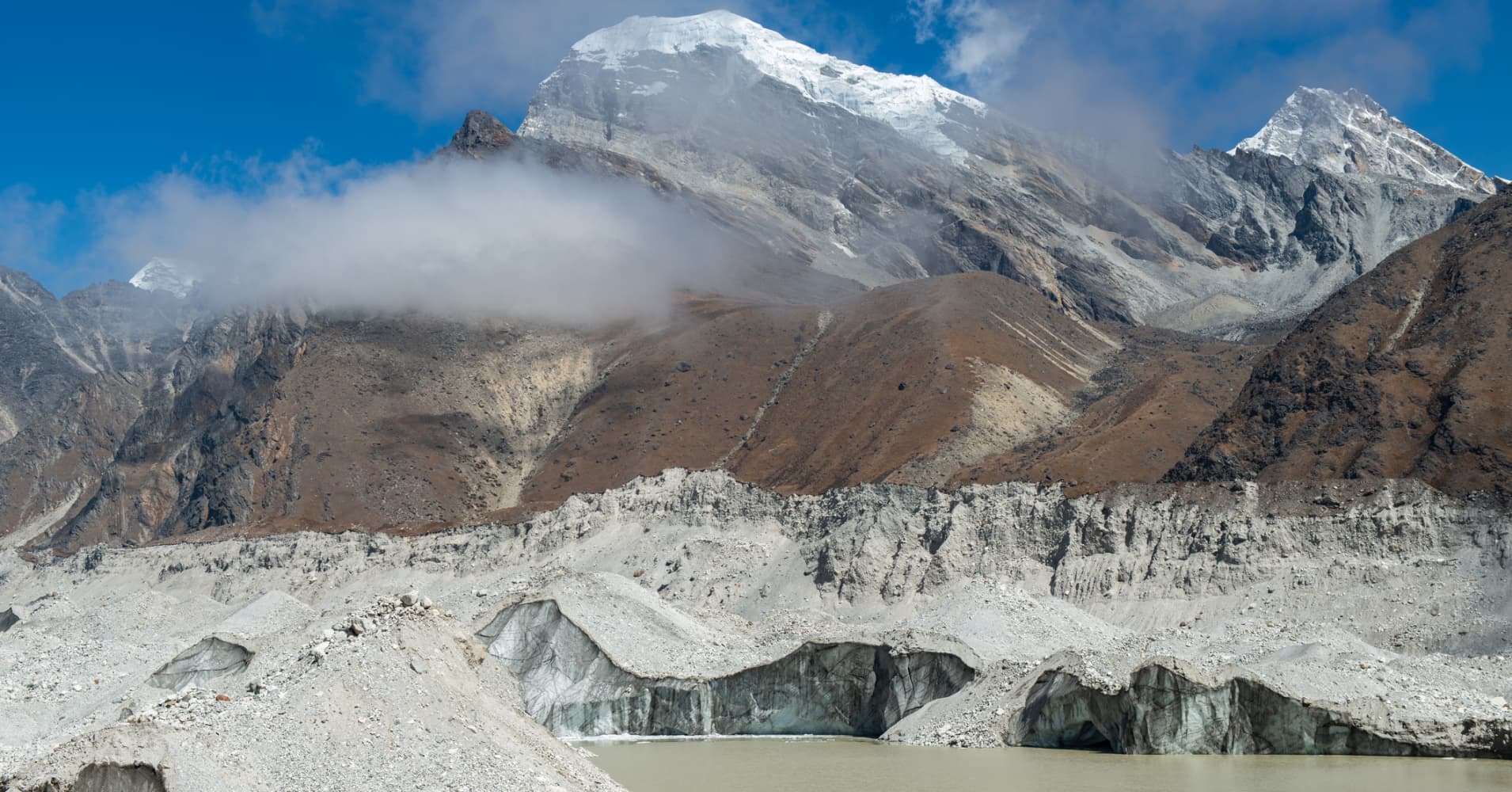
Even with current 2030 targets, global temperatures are on track to rise by 2.4 degrees Celsius by the end of the century, independent research group Climate Action Tracker has warned.
This is well above the 1.5 degree Celsius target for global warming, set out in the 2015 Paris Agreement.
In a report, published Tuesday midway through the COP26 climate summit, CAT said the targets for 2030 remain "totally inadequate."
CAT said that there is a "massive credibility, action and commitment gap that casts a long and dark shadow of doubt over the net zero goals" put forward by many countries.
The research group added that there has been "insufficient momentum from leaders and governments to increase 2030 climate targets ahead of, and at, Glasgow."
— Vicky McKeever
=null} - Alexandria Ocasio-Cortez: The U.S. is back with a 'fundamentally different approach' to climate policy{
10:33 a.m.: Alexandria Ocasio-Cortez: The U.S. is back with a 'fundamentally different approach' to climate policy
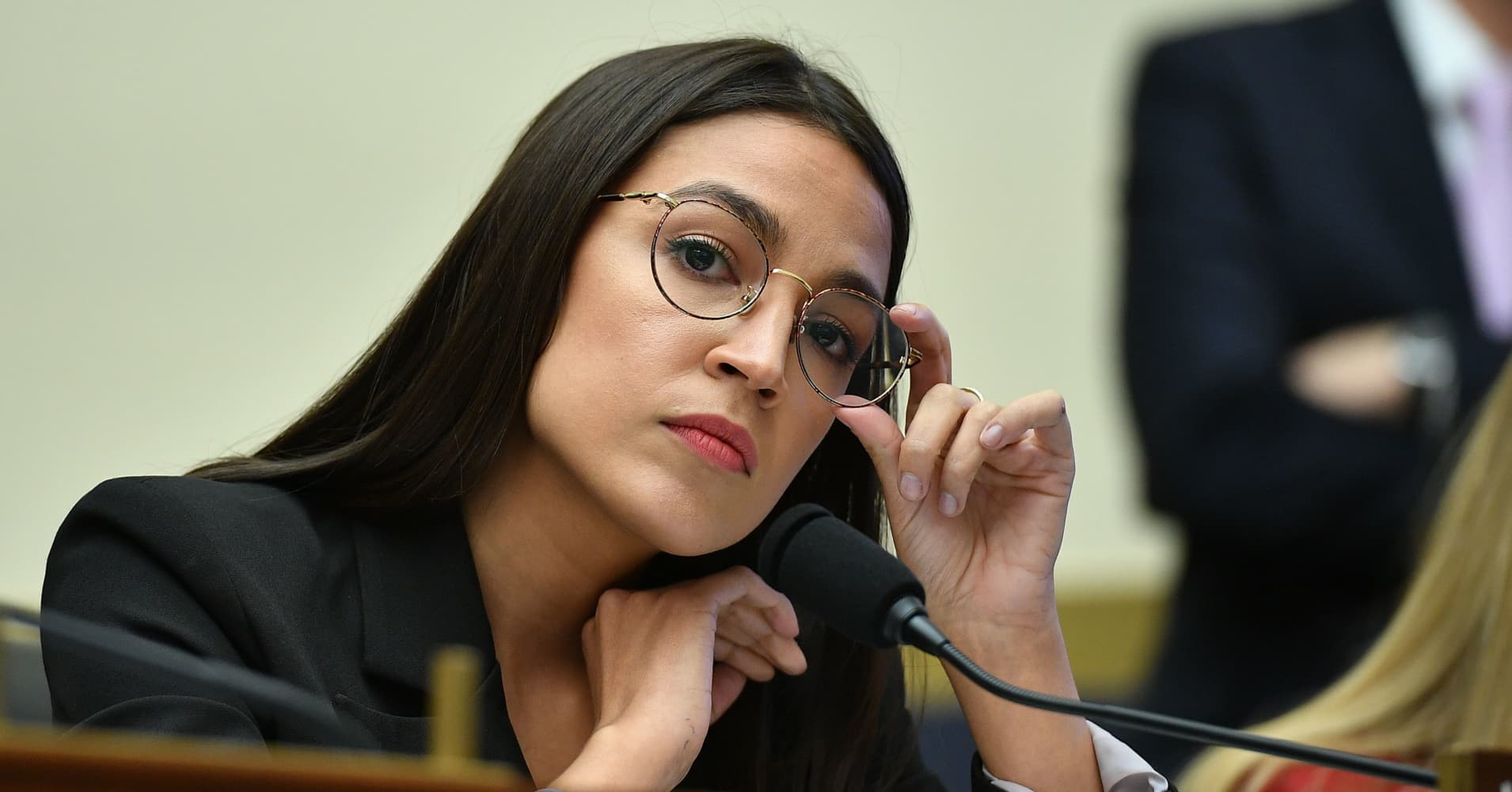
U.S. Congresswoman Alexandra Ocasio-Cortez reportedly told delegates at the COP26 climate summit that the U.S. had made a comeback to climate policy negotiations with a new approach.
Ocasio-Cortez said that the U.S. hadn't just returned to negotiations but that its approach was "different" and "more just."
"And we are more open minded to questioning prior assumptions of what is politically possible," she said at a side event at COP26, according to Reuters.
"And I would argue that it's a fundamentally different approach," she added.
In one of his first acts after taking office in January, President Joe Biden signed the U.S. back up to the Paris Agreement.
— Vicky McKeever
=null}
10:33 a.m.: Alexandria Ocasio-Cortez: The U.S. is back with a 'fundamentally different approach' to climate policy
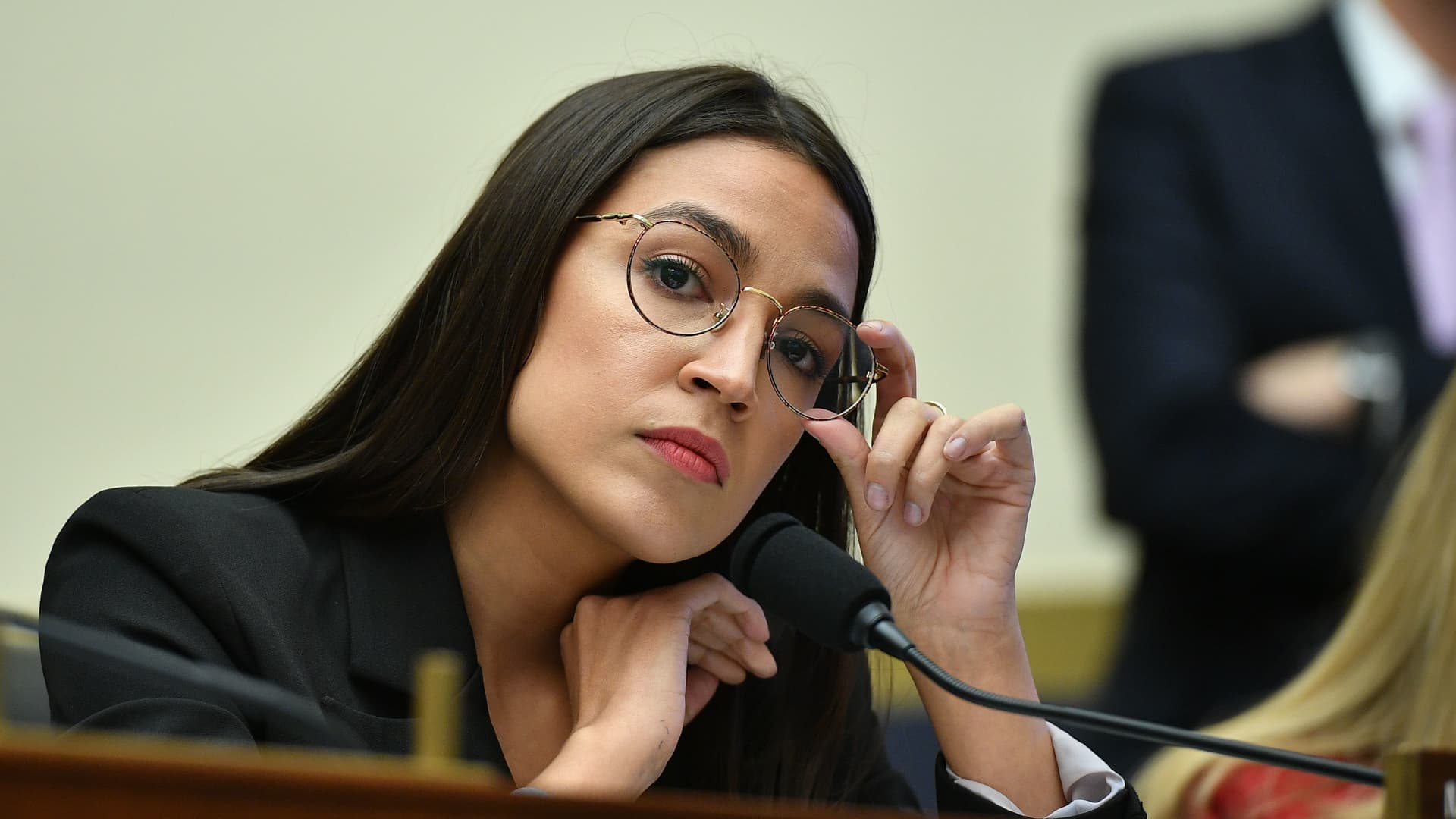
U.S. Congresswoman Alexandra Ocasio-Cortez reportedly told delegates at the COP26 climate summit that the U.S. had made a comeback to climate policy negotiations with a new approach.
Money Report
Ocasio-Cortez said that the U.S. hadn't just returned to negotiations but that its approach was "different" and "more just."
"And we are more open minded to questioning prior assumptions of what is politically possible," she said at a side event at COP26, according to Reuters.
"And I would argue that it's a fundamentally different approach," she added.
In one of his first acts after taking office in January, President Joe Biden signed the U.S. back up to the Paris Agreement.
— Vicky McKeever
10:01 a.m.: Global warming to hit 2.4 degrees by the end of century, Climate Action Tracker warns
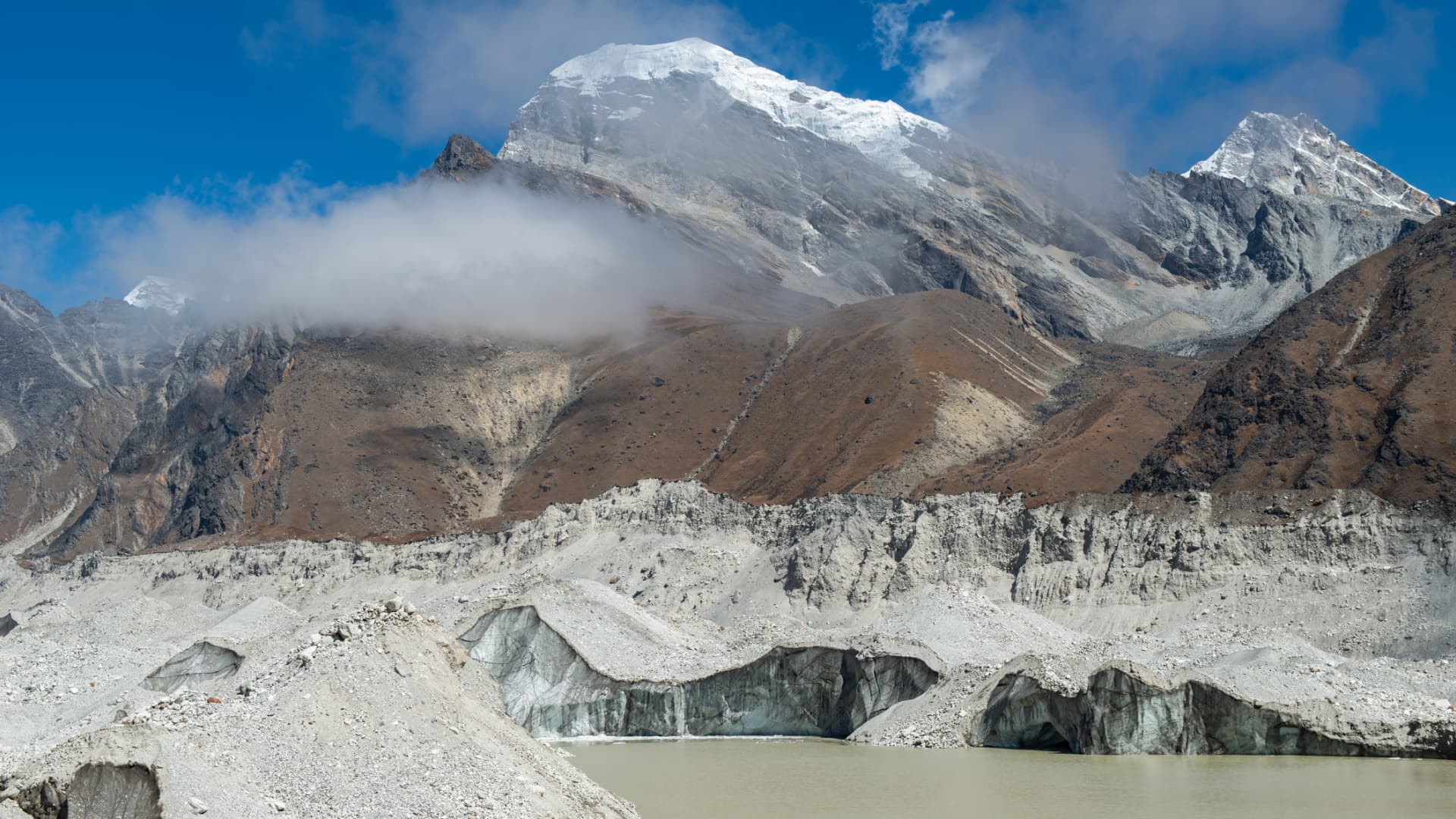
Even with current 2030 targets, global temperatures are on track to rise by 2.4 degrees Celsius by the end of the century, independent research group Climate Action Tracker has warned.
This is well above the 1.5 degree Celsius target for global warming, set out in the 2015 Paris Agreement.
In a report, published Tuesday midway through the COP26 climate summit, CAT said the targets for 2030 remain "totally inadequate."
CAT said that there is a "massive credibility, action and commitment gap that casts a long and dark shadow of doubt over the net zero goals" put forward by many countries.
The research group added that there has been "insufficient momentum from leaders and governments to increase 2030 climate targets ahead of, and at, Glasgow."
— Vicky McKeever
8:45 a.m.: COP26 panel focuses on 'keeping 1.5C alive' with the help of science
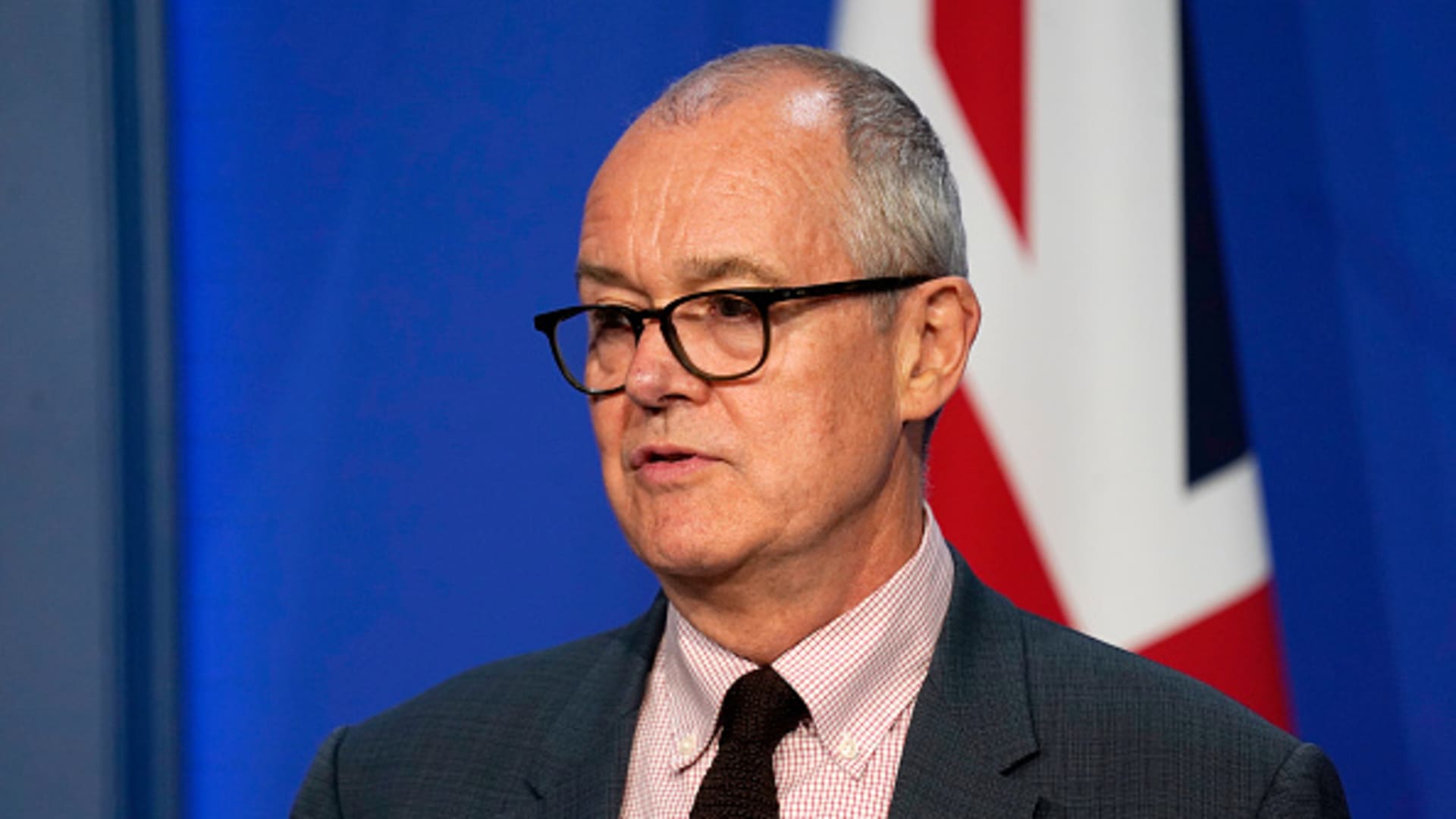
A panel has begun at the COP26 summit looking at how countries, corporations and climate organizations can, as the organizers put it, "keep 1.5C alive" referring to the 2015 Paris Agreement pledge to limit global warming to 1.5 degrees Celsius, compared to pre-industrial levels.
Patrick Vallance, the U.K. government's chief scientific advisor, said that science and technology have the biggest role to play in tackling, tracking and measuring climate change, as well as assessing measures being put in place to reduce carbon emissions.
Vallance spoke of the need to adapt to climate change "in order to be ready for what's coming" and to embrace technologies to tackle, and reduce, the impact of climate change.
"We have many of the technologies needed to tackle the problem but they need to be improved," he said, listing that technologies need to "come down in cost, they need to increase in convenience, they need to be applicable right across the globe and we need to scale them." The latter, he said, requires research and development.
Science has to be woven through "every single consideration in our response to this global problem we face," he said. "Science has played the role of the diagnostician ... now it now needs to play the role of the treatment as well, and the treatment will be in technology, innovation, land and natural solutions and behavioral and societal change."
— Holly Ellyatt
7:10a.m.: More on the surge in ESG investments
Julia Hoggett, CEO of the London Stock Exchange, discusses the future of green market regulation amid a surge in ESG investments.
6:40 a.m.: The search for greener solutions for big emitters

The building materials and construction sector is estimated to account for around 40% of global greenhouse gas emissions, so it's at the heart of the climate change debate.
A new report by the World Green Building Council, released last week, emphasized that real estate businesses need to invest in sustainability to help foster a more welcoming, green environment.
One of the partners in the Council's European network is French construction materials group Saint-Gobain, which has invested nearly 14 million euros ($16.2 million) to reduce its carbon footprint and to make its manufacturing plants in India more water efficient.
Benoit Bazin, the chief executive of Saint-Gobain, told CNBC Tuesday that the COP26 summit was a big opportunity to convey the construction sector's ambitions and needs to policymakers.
"Clearly this is a huge opportunity to work on solutions for buildings, the largest emitters of CO2," he said.
"We can work with new ways of construction, we can be very careful with natural resources and we're here at COP to ask governments to revise up building standards and to accelerate the renovation of public and private buildings in the U.S. and Europe and to provide us with a framework for green energy so we can manufacture net-zero building materials," he said.
— Holly Ellyatt
6:00a.m.: Companies should take incentive to make businesses greener, SAP says
Scott Russell, member of the executive board for SAP, talks to CNBC about the company's new software that will help brands get better visibility over their supply chains.
5:30a.m.: The world needs more nuclear energy, French official says
France's President Emmanuel Macron has been pushing for nuclear energy to become a bigger part of Europe's energy mix with the issue becoming increasingly salient against a backdrop of energy price hikes and supply issues in recent months.
In October, Macron announced that France would build new, smaller nuclear reactors as part of a five-year investment plan aimed at re-industrializing the country.
Cedric O, France's secretary of state for the digital economy, told CNBC at the COP26 summit that nuclear energy was a rational choice.
"If you want to reduce your carbon emissions you need to develop renewable energies ... but you [also] need an energy which is not dependent on the level of sun or the speed of the wind, you need an energy that is constant so you have a choice between coal, gas and nuclear."
"If you do the maths, we need more nuclear, it's not only France that's saying this it's also the International Energy Agency and we see that, globally, more and more countries are considering that nuclear question."
— Holly Ellyatt
4:50 a.m.: Are regulators behind the curve on methane-reducing products?
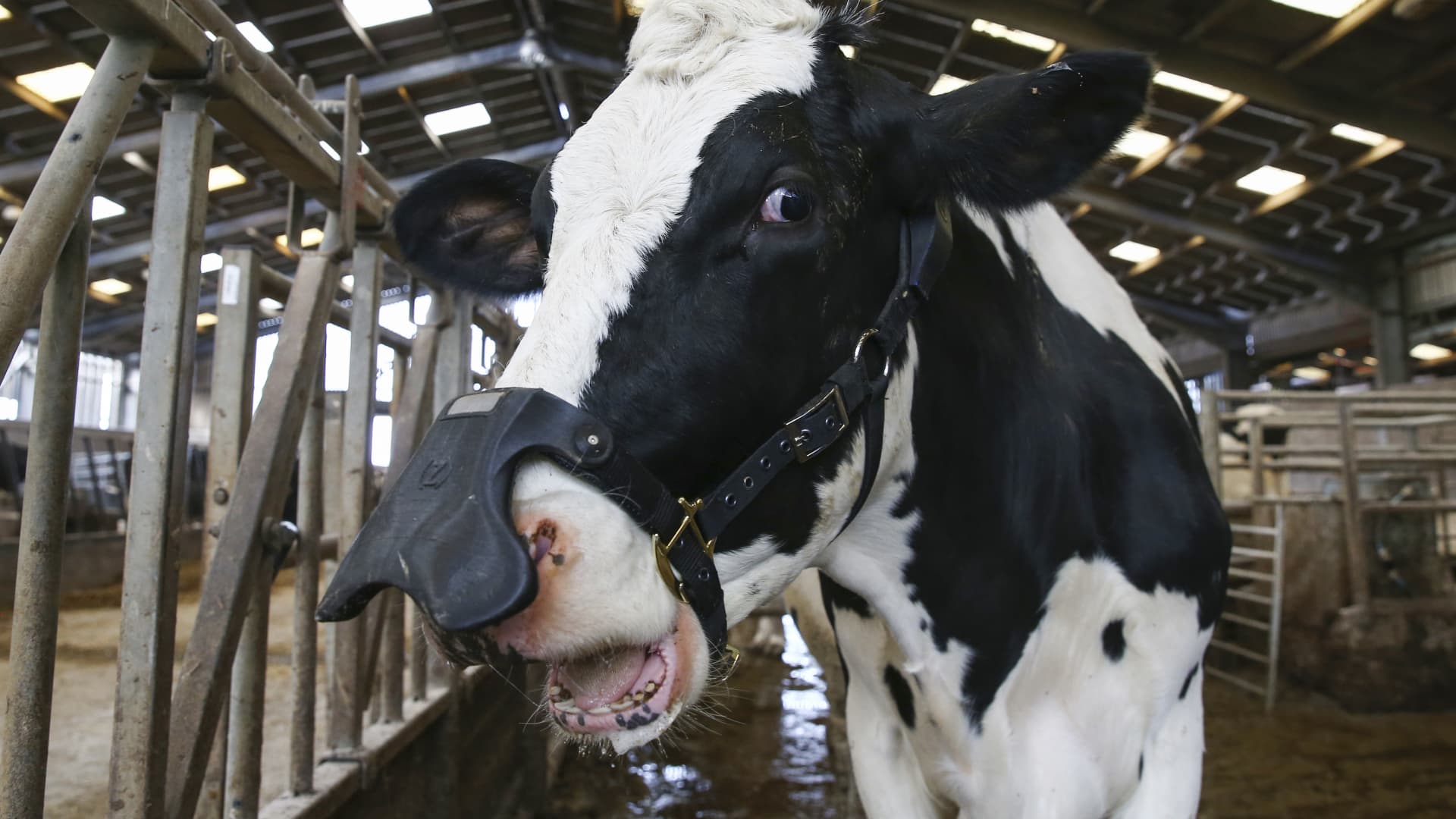
Methane has been one of the big topics at COP26, with more than 100 countries pledging to reduce planet-warming methane emissions by 30% by 2030 in what is known as the "Global Methane Pledge."
CNBC was joined Tuesday morning at the summit by Geraldine Matchett, co-CEO and chief financial officer of Royal DSM, a company that has been working to tackle the environmental challenges linked to global food production and consumption.
In September, Royal DSM announced a new plant for the large-scale production of a cattle feed supplement called Bovaer that significantly cuts the methane produced by cows.
The supplement has been cleared for use by some South American countries and regulatory approval could be imminent in Europe but the outlook is less clear in the U.S., the world's largest producer of beef.
"When it comes to the U.S. and the regulatory clearance there, this is a new ingredient that goes into our food and therefore I think it's fair that the process should be very diligent," Matchett told CNBC when asked when regulators in Europe and the U.S could finally approve the methane-reducing supplement.
"But of course with the methane pledge and the increased degree of urgency which is clearly related to climate change and methane maybe there's a way of going a little faster but we would never want any authority to take a short cut, this needs to be done right."
— Holly Ellyatt
3:00a.m.: Meet the youth activists fighting for climate action at COP26
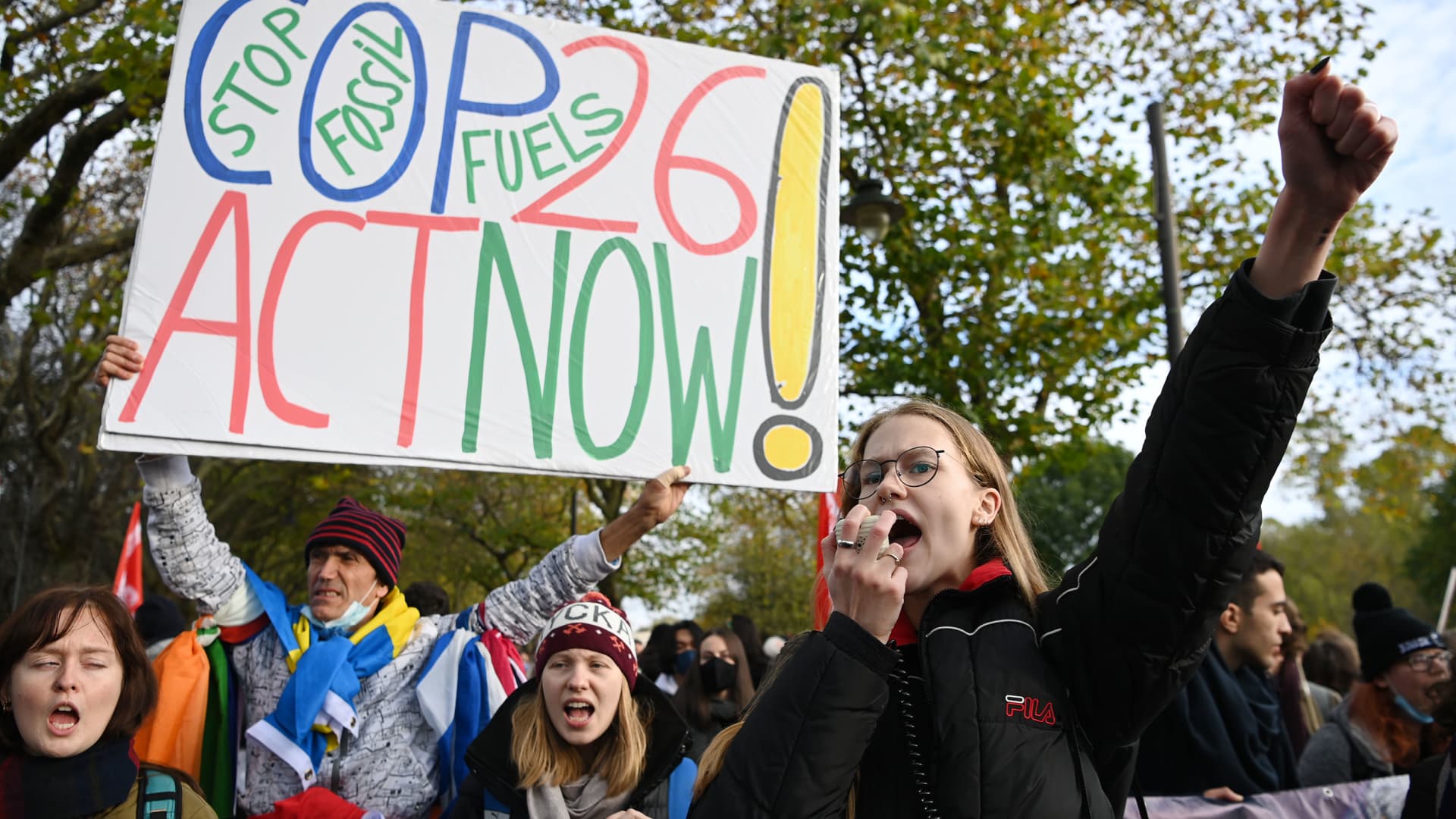
Youth activists on the frontlines of the climate crisis have come to the COP26 summit to push for an end to inaction, urging politicians and business leaders to do all they can to meet the crucial goal of capping global heating to 1.5 degrees Celsius.
Tens of thousands of protesters marched through the rainy streets of Glasgow, Scotland over the weekend to demand the urgent measures necessary to tackle the climate emergency.
Placards bearing slogans such as "COP26 Act Now!" and "We Need Action Not Promises" were held up through the city center as many chanted "system change, not climate change." Just a bus ride away talks at the summit continued behind closed doors.
— Sam Meredith
2:20 a.m.: A recap of Monday's highlights
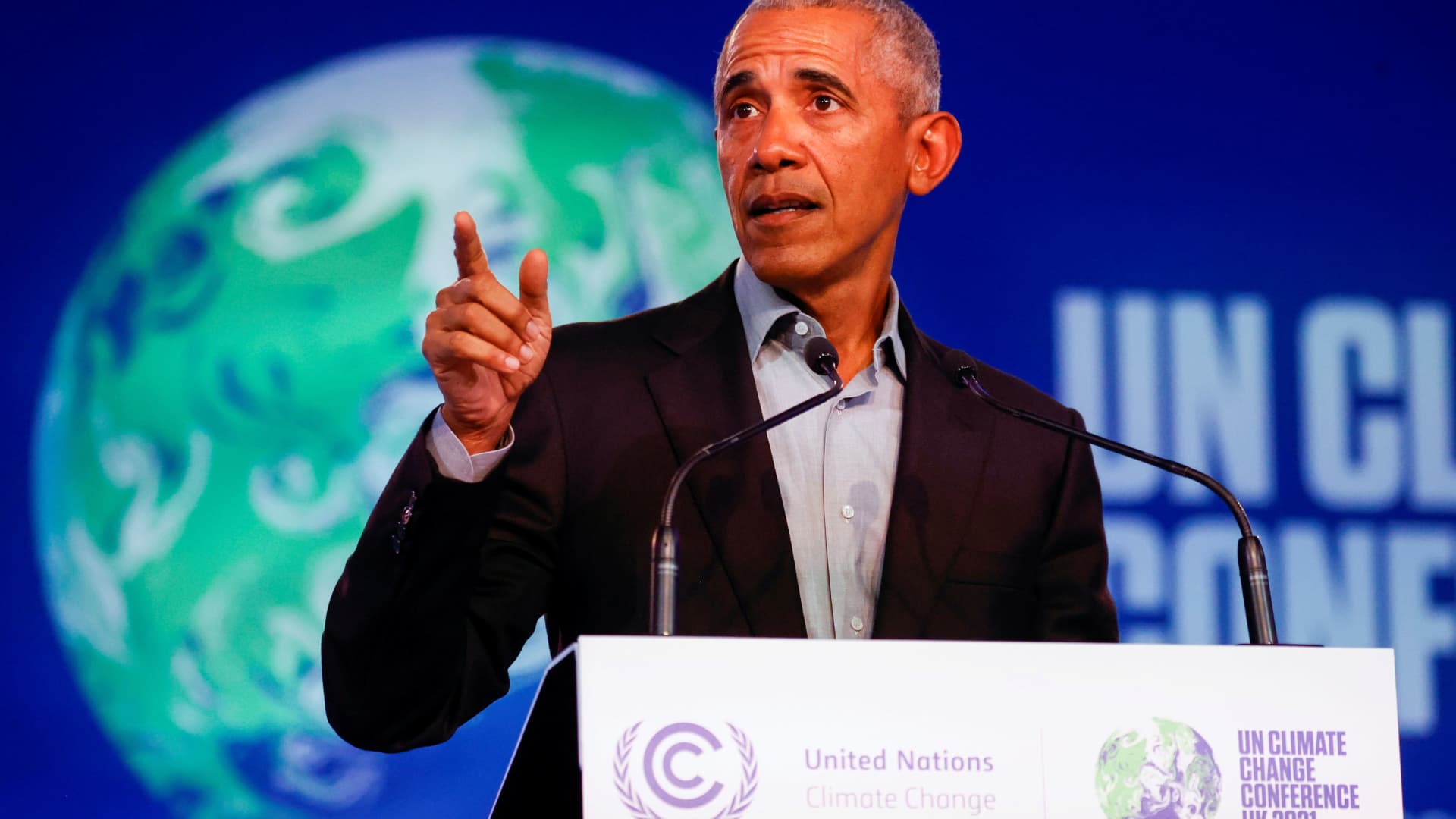
Monday's main program was focused on the loss and damage caused by global warming and how countries can adapt to climate change.|
One of the highlights for many attendants was former U.S. President Barack Obama's speech to delegates in which he warned that "when it comes to climate, time really is running out."
Obama, who was president when the U.S. endorsed the 2015 Paris Agreement that his predecessor Donald Trump later withdrew the U.S. from, warned that "we have not done nearly enough to address this crisis, we are going to have to do more." He said that both individually and collectively, we are falling short in tackling climate change.
There is still much work to be done at the summit. Delegates still need to iron out a plan to contain global temperature rises to 1.5 degrees Celsius above pre-industrial levels — and there is not yet any clear indication that this is going to happen.
— Holly Ellyatt
1:58 a.m.: What's on Tuesday's agenda?
Tuesday's main focus is on science and innovation that are critical to limiting climate change.
'Science and Innovation Day' at COP26 is expected to see the announcement of new initiatives backed by global coalitions of nations, businesses and scientists.
The U.K. government's Chief Scientific Adviser Patrick Vallance will underline the critical role of science and innovation in enabling every country to access the tools it needs to immediately reduce emissions in line with the 2015 Paris Agreement temperature targets.
A coalition of 23 governments (covering 95% of global public investment in clean technology, research and development) will announce four new 'innovation missions' in which countries will work together to accelerate the development of clean technologies for cities, industry, carbon dioxide removal, and the production of renewable fuels, chemicals, and materials, the U.K. government said in a statement.
Progressing gender equality and the full and meaningful participation of women and girls in climate action is also another topic being discussed on Tuesday.
— Holly Ellyatt


